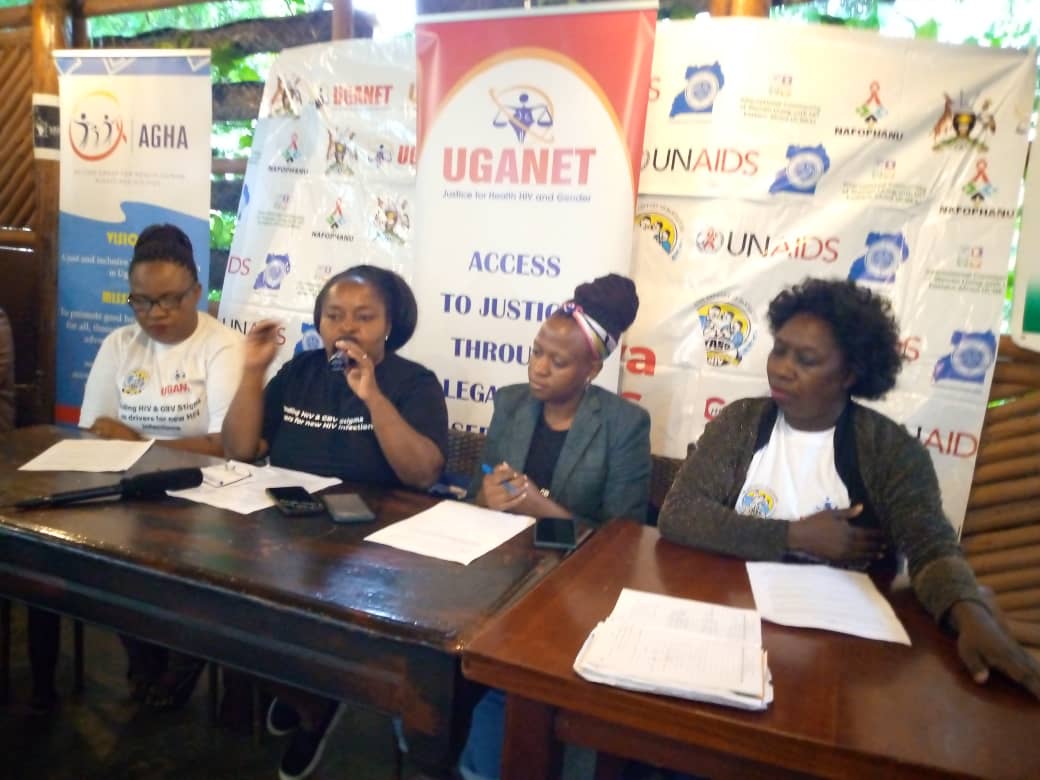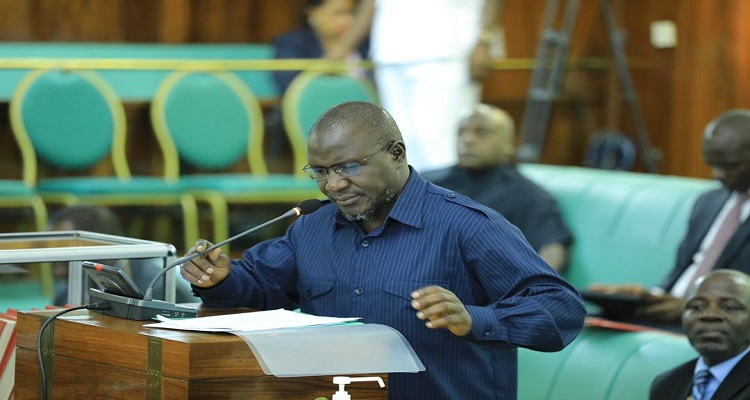Uganda Network of Law, Ethics and HIV/AIDS (UGANET) in collaboration with the Civil Society HIV Law Coalition is strengthening its resolve to empower the female gender through using technology as a tool.
Following the commemoration of International Women’s Day on March 8th, 2023, UGANET held post women’s day celebrations at Uganda Museum Kampala on March 10th, in commemoration of the utilization of innovation and technology to enhance gender equality for women and girls.
In a press briefing during the event, which was also premised on celebrating the equality and equity of women, human rights activists revealed that the influx of Covid-19 in Uganda was an eye opener for the citizenry that technology is the best way to increase the access of services.
“We look up to a Uganda where you sit in your home and click a button and services are delivered to you as a person, as a woman, as a girl living with HIV to be in that place where you will sit and ask your medical worker that I need my refill and the medicine is delivered to your homestead,” said Ms. Immaculate Owomugisha, the head of advocacy and strategic litigation at UGANET.
It should be noted that the recognition of equality and diversity for the female gender will be so instrumental in adding momentum to the quest for civil society law coalition and partners, to empower girls and women, by enabling their quick access to vital services, through innovations and digitalization.
Yesterday’s event was largely attended by Uganda’s key personalities at the forefront of championing human rights for all, and it was tailored around the theme; “Digital, Innovation, and Technology for gender equality”
The event was aimed at raising consciousness and stimulating the need for strong action among the female gender and the public in general, in fighting discrimination, gender based violence (GBV) and other injustices metted against women and girls.
Major stakeholders in the gender equality space sought to advocate for the use of technology and innovations, to increase the uptake of HIV and TB services like screening, support services, counseling services, treatment among others, for the female gender.
Dorris Ninsiima, the lead at Action Group for Health, Human Rights and HIV (AGHA Uganda) during the same press briefing said that the major aim of popularizing digital transformation is to actualize gender equality in respect to the promotion, implementation and respect of Women’s rights.
She called upon other actors in the human rights space to embrace science and technology, while formulating and implementing HIV and TB related laws and policies to expand economic security for women and girls.
This, she said will be done by advocating for, and embracing key innovations in the technology arena, something that will facilitate prevention of violence against women and girls, curtail their movement for long distances to access HIV and TB services, phasing out discriminatory laws that perpetuate violence against women, while reinforcing power dynamics between men and Women.
Ms. Ninsiima also issued a call to all actors in the human rights space to embrace science and technology, while formulating and implementing HIV and TB related laws and policies, expand economic empowerment for the female gender, through embracing innovations that will facilitate prevention of violence against women and girls, on top of providing access to health care including reproductive health, mental health, and maternal health care.
The outspoken gender equality activist also advocated for safeguarding women’s rights in addition to the promotion of their full participation in all health care related services, redoubling commitment for eliminating gender based violence where it occurs, through establishing clear referral linkage services and programs in place to tackle GBV.
Besides, she issued a strong voice to the responsible stakeholders in the realm of gender equality to strive for the promotion of accountability for conflict sexual violence, and expand protection services put in place for women and girls experiencing sexual and GBV in Uganda, in addition to implementing critical legislation that will advance access to services for health and GBV survivors.
Also addressing the same press conference, Joanita Kawalya, a Ugandan singer and a women’s rights activist, whose songs have been largely tailored towards the fight against HIV and GBV underlined the importance of women empowerment to social and economic transformation of any modern society.
“We celebrate the truth of life every day, that women and girls are essential to success and progress in every aspect of our community or our society, promoting opportunities, including innovation and technology for women and girls, strengthens security, stability, and prosperity for everyone,” Ms. Kawalya told the press, and supplied a toll free line of 0800333123 to the public to report any GBV cases.
She made it clear that women are primary caregivers in Uganda and the world at large, whose vital capabilities should be incorporated in the struggle to tackle the nation’s key challenges like poverty alleviation, through their empowerment and respect for their rights.
Yesterday’s event was also aimed at striving towards a future where women enjoy an equal voice in shaping key societal decisions and equal opportunities in striving for socioeconomic transformation of Uganda.
Do you have a story in your community or an opinion to share with us: Email us at Submit an Article









